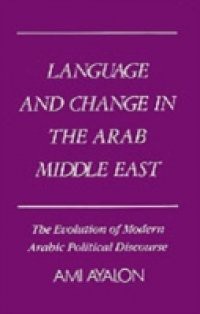Middle Eastern society experienced sudden and profound change in the 19th century under the impact of European expansion and influence. But as Western ideas about politics, technology, and culture began to infiltrate Arab society, the old language proved to be an inadequate vehicle for transmitting these alien concepts from abroad. In this study of the rise of modern Arabic, Ayalon examines 19th-century linguistic change in the Eastern Arab world as a mirror of changing Arab perceptions and responses to the West as well as a guide to the emergence of modern Arabic concepts, institutions, and practices. Focusing on the realm of political discourse, Ayalon looks at a wide array of evidence--local chronicles, travel accounts, translations of European writings, Arab political treatises, newspapers and periodicals, and dictionaries--to show how shifts in the color, tone, and meaning of the Arab vocabulary reflected a new socio-political and cultural reality.

